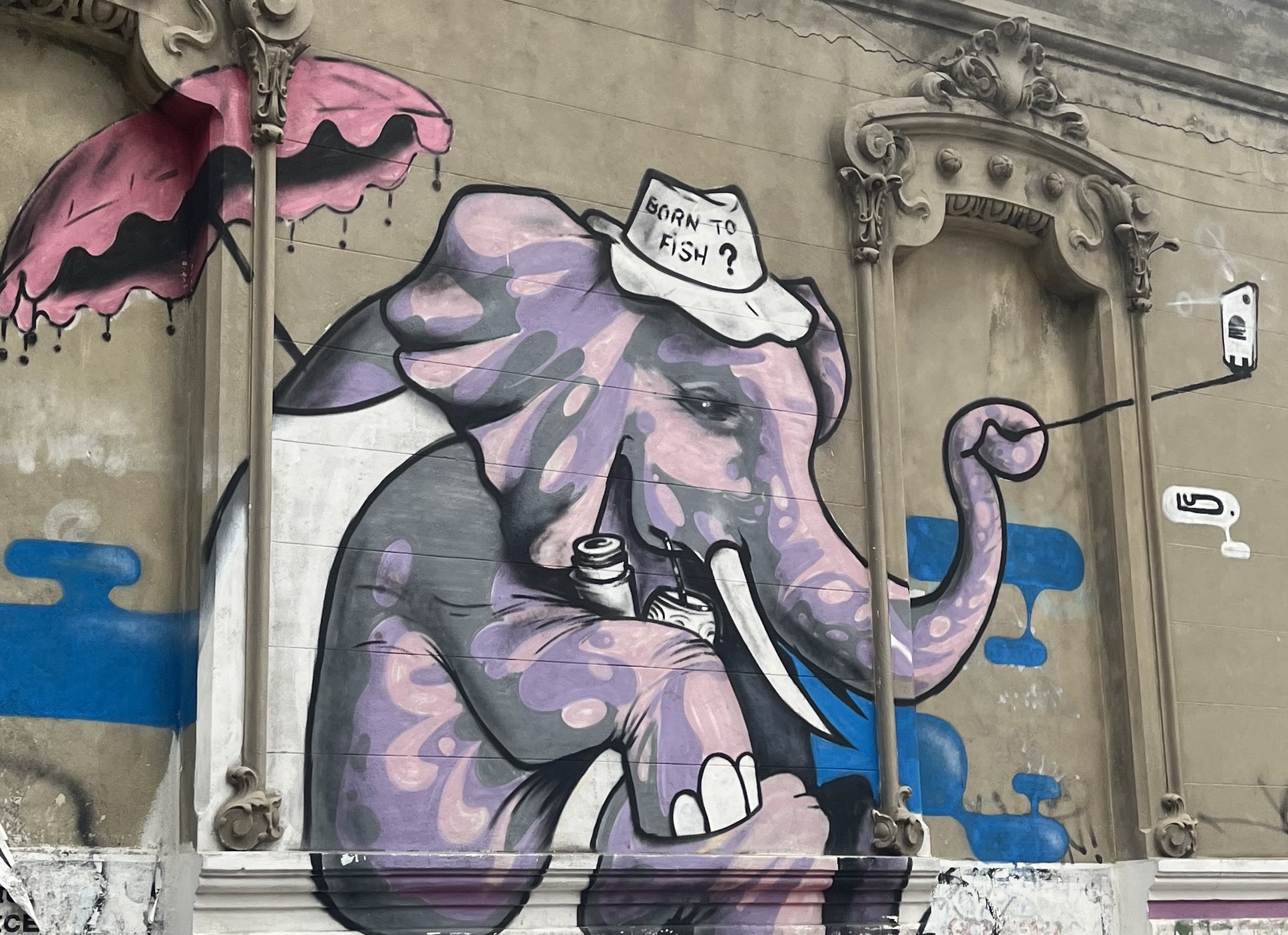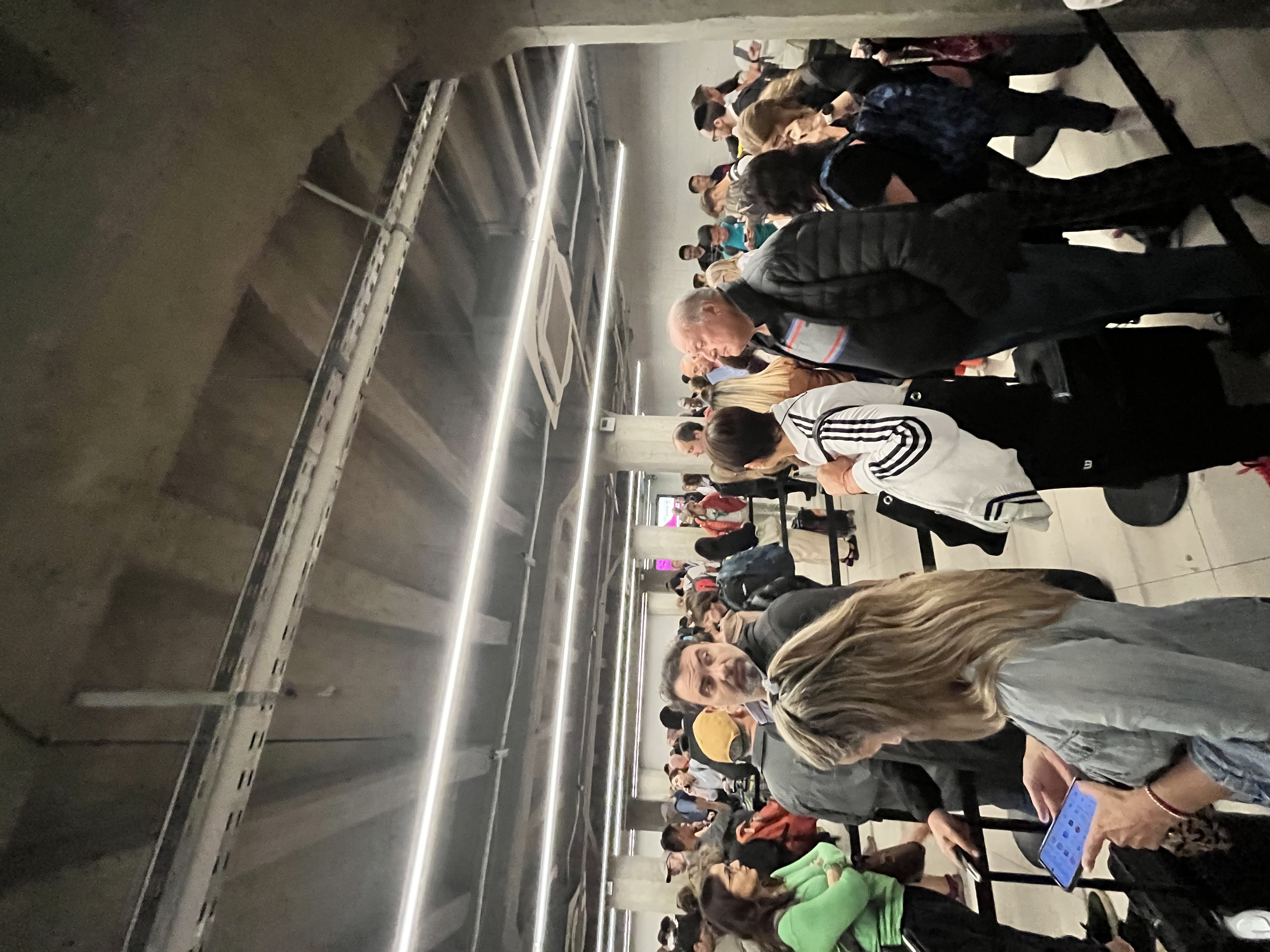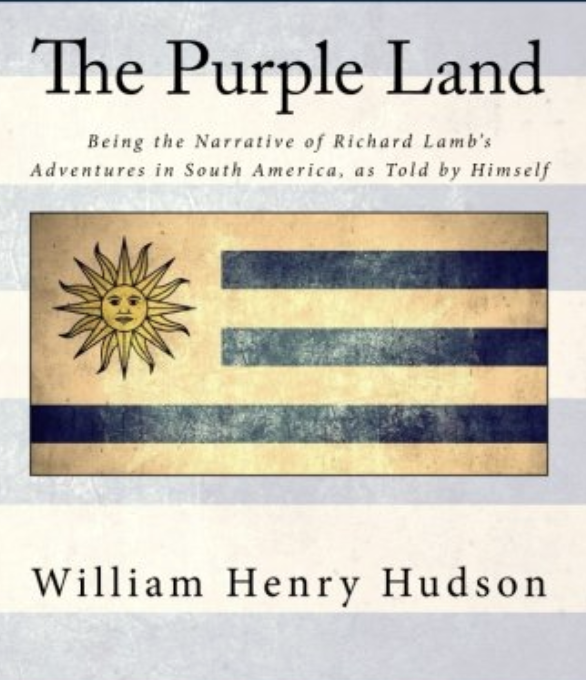Uruguay
Table of Contents
1. Introduction
I've lived in Uruguay for a while, so I figured I'd do a quick writeup of life here. I came to Uruguay initially because I had sort of seen it as a great break from Iraq1, and also a little out of the beaten path. From a bureaucratic standpoint, Uruguay is one of the smoothest countries I've ever lived in. From a food standpoint, I feel like I could take it or leave it. Here's some various notes I've collected along the way about being here.
2. The Cities
There's basically two cities: Montevideo and Punta Del Este. Montevideo is the capital, and contains roughly 50% of the population. Punta Del Este is a nice spot, but it's also a jet setter beach resort destination, so pick your battles. Montevideo, since it's the only large city in the country, is sort of its own world. You'll meet many Montevideans who have never actually been to the interior of their country. I've mostly stayed put in Montevideo.
Depending on who you ask, Montevideo is either dirty and filled with muggings, or clean and functional. I'm in the latter camp, coming from Baghdad, having 24 hours of electricity, potable water (!!!) out of the tap2, and working internet everywhere I went was a wonderful time. The city has old European style architecture in many places, although now there's a ton of glass and metal monstrosities going up across the city.
Montevideo is dead in the winter, but as the summer rolls around, the city comes alive with events and tourists. I've seen interesting theaters, been annoyed at loud music festivals, and shopped around. There's plenty of tourist guides for Montevideo.
Uruguay has a relatively high cost of living, you're probably paying 350ish pesos per meal, which rounds out to about 9-10 bucks per meal. It's certainly cheaper than the states, but far cry from Argentina, whose prices are so insanely low you begin to wonder how they even function over there.
In recent years, given the preponderance of population in Argentina vs Uruguay, the Uruguayos have been receiving far more cultural products from Argentina, such as TV series, music, etc. This means that many Uruguayos you meet have effectively grown up in the shadow of Argentina, and develop a relationship to Argentina that's similar to Canada and the States, wherein a huge chunk of Canadian culture is defined in its relation to US culture.
3. Argentina
If you're living in Montevideo, you'll likely be taking trips to Buenos Aires, simply because Montevideo gets too boring, or to go buy stuff in BA. This means taking the boat. There's two options for the boats, you can take a bus to Colonia then a boat to BA, or a direct boat from Montevideo to BA. Bus route is cheaper, but in total you're probably spending around 6 hours after Argentinian immigration, whereas the direct boat is maybe 3-4 hours total. Your call, but note that the BA side has pretty slow immigration in general, and you'll be standing in line for over an hour or so.
A typical day on the Buenos Aires immigration.
4. Spanish
Everyone speaks Spanish, you're lucky if someone speaks English, but don't count on it. Education is public and mandatory until high school, and all Uruguayos will have studied some English, but nowhere near enough to hold a conversation. You're more likely to find someone that speaks English in a city than the interior. I suggest learning to speak some Spanish, but note that you can effectively do all paperwork online, and if you head to a government office, they'll actually likely insist that you do the paperwork online.
5. Food and Drinks
The food, well, the food isn't very diverse. Basically every single restaurant for an inexplicable reason runs off of the same menu, and bears extremely strong resemble to Argentina. There's 4 times as many cows as people in this country3, so everything is heavily meat based. They also don't eat very much fish, which is kind of interesting on its own, considering Montevideo is a coastal city. Basically everything that's written in https://idlewords.com/2006/04/argentina_on_two_steaks_a_day.htm is true, all the restaurants run the same gamut.
Of course, you'll see the universal mate around. Mate is a herbal caffeinated drink that's drunk day and night, and a core part of culture in Uruguay and Argentina. Funnily enough, you can also see the difference between the cultures in the two countries, Argentinians will almost always share their mate with strangers, whereas Uruguayos refuse to offer to share mate, but will happily share a joint. I suspect this is because a joint is a short affair, 10 minutes and you're off, but mate is an event, so for the Uruguayos, who see themselves as a little melancholic, will refuse to share mate with you unless they know the vibe is good.
The book The Purple Land makes a big deal about drinking rum and mate, but honestly I didn't see that very much. Montevideo is popping with IPAs, there's endless fashionable bars these days. Most people seem to drink beer, with hard liquor being fairly expensive. Inaccuracies about modern alcohol habits aside, The Purple Land is a book that starts slow as hell but finishes strong, and provides a fun point of view on the early formation of this country.
6. Bureaucracy
Everything here runs off of a personal ID card called the cedula. Note that without a cedula, you're effectively locked out of interacting with a ton of institutions, including the online shopping site called "Mercado Libre". It is my suggestion that if you plan on staying, get a cedula as soon as possible. I've written instructions about it in https://wiki.malloc.dog/posts/visa_s/, which I'll avoid reproducing here. Note that the bureaucracy is generally pretty helpful.
Note that infrastructure is generally very good in the cities, basically every bar and restaurant has wifi, and the national carrier, ANTEL, provides excellent fiber to homes. Mobile carries are extremely reliable as well.
Footnotes:
After a year and a half in Iraq, see http://malloc.dog/karbala/, I figured it was time to change it up.
Although there was a water crisis during the winter when I showed up.
A factoid you'll never stop hearing from Uruguayos.


